Peugeot 308 vs Toyota C-HR - Differences and prices compared
Compare performance (195 HP vs 223 HP), boot space and price (29200 £ vs 29100 £ ) at a glance. Find out which car is the better choice for you – Peugeot 308 or Toyota C-HR?
Costs and Efficiency:
When it comes to price and running costs, the biggest differences usually appear. This is often where you see which car fits your budget better in the long run.
Toyota C-HR has a slight advantage in terms of price – it starts at 29100 £ , while the Peugeot 308 costs 29200 £ . That’s a price difference of around 103 £.
Fuel consumption also shows a difference: Toyota C-HR manages with 0.80 L and is therefore significantly more efficient than the Peugeot 308 with 2.30 L. The difference is about 1.50 L per 100 km.
As for electric range, the Peugeot 308 performs convincingly better – achieving up to 450 km, about 382 km more than the Toyota C-HR.
Engine and Performance:
Power, torque and acceleration are the classic benchmarks for car enthusiasts – and here, some clear differences start to show.
When it comes to engine power, the Toyota C-HR has a a bit edge – offering 223 HP compared to 195 HP. That’s roughly 28 HP more horsepower.
In acceleration from 0 to 100 km/h, the Toyota C-HR is hardly perceptible quicker – completing the sprint in 7.40 s, while the Peugeot 308 takes 7.60 s. That’s about 0.20 s faster.
In terms of top speed, the Peugeot 308 performs somewhat better – reaching 225 km/h, while the Toyota C-HR tops out at 180 km/h. The difference is around 45 km/h.
Space and Everyday Use:
Beyond pure performance, interior space and usability matter most in daily life. This is where you see which car is more practical and versatile.
Both vehicles offer seating for 5 people.
In curb weight, Peugeot 308 is minimal lighter – 1453 kg compared to 1505 kg. The difference is around 52 kg.
In terms of boot space, the Toyota C-HR offers slight more room – 447 L compared to 412 L. That’s a difference of about 35 L.
In maximum load capacity, the Peugeot 308 performs to a small extent better – up to 1323 L, which is about 168 L more than the Toyota C-HR.
When it comes to payload, Peugeot 308 a bit takes the win – 503 kg compared to 425 kg. That’s a difference of about 78 kg.
Who wins the race in the data check?
The Peugeot 308 sits just ahead overall in the objective data comparison.
This result only shows which model scores more points on paper – not which of the two cars feels right for you.
Costs and Consumption
View detailed analysis
Engine and Performance
View detailed analysis
Dimensions and Body
View detailed analysis
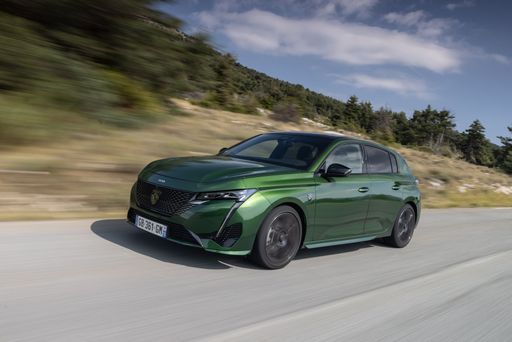
Peugeot 308
Peugeot 308
The Peugeot 308 brings a sleek, feline profile and an unexpectedly upscale cabin, with clever packaging and materials that feel a touch more premium than you might expect. It’s composed on the road, easy to live with for daily life, and a smart choice if you want a stylish hatch that still behaves when the road gets interesting.
details
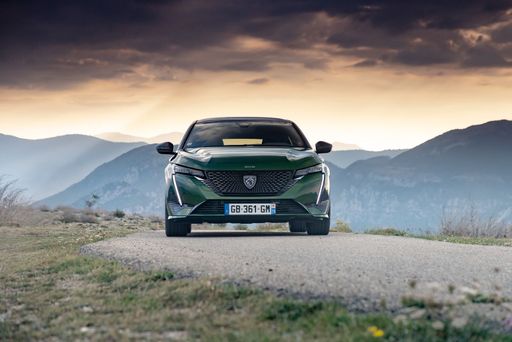
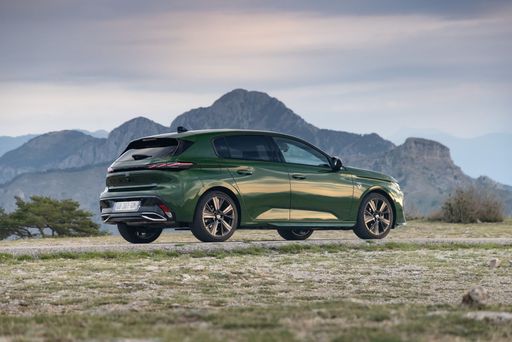
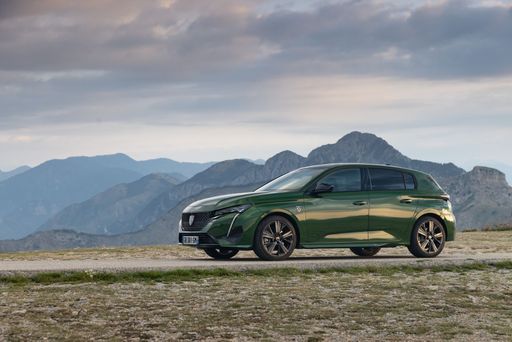
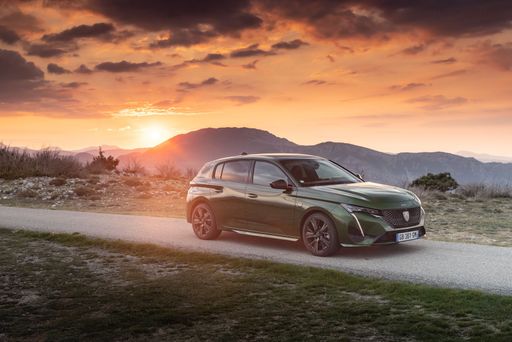
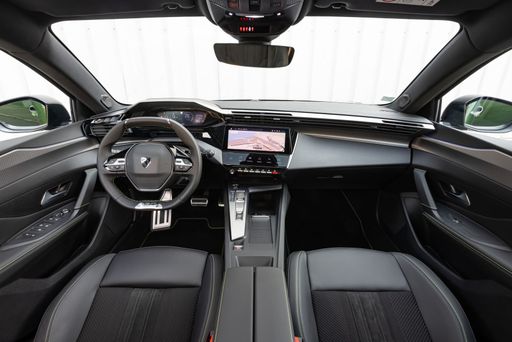
Toyota C-HR
The Toyota C-HR cuts a striking figure with its angular styling and coupe-like profile, so you’ll never go unnoticed in the supermarket car park. It balances everyday practicality with a nimble, city-friendly personality, making routine commutes feel a touch more fun without asking for forgiveness.
details




Costs and Consumption |
|
|---|---|
|
Price
29200 - 42600 £
|
Price
29100 - 42800 £
|
|
Consumption L/100km
2.3 - 5 L
|
Consumption L/100km
0.8 - 5.1 L
|
|
Consumption kWh/100km
15.60 kWh
|
Consumption kWh/100km
-
|
|
Electric Range
78 - 450 km
|
Electric Range
68 km
|
|
Battery Capacity
0.40 kWh
|
Battery Capacity
-
|
|
co2
0 - 129 g/km
|
co2
17 - 115 g/km
|
|
Fuel tank capacity
42 - 52 L
|
Fuel tank capacity
43 L
|
Dimensions and Body |
|
|---|---|
|
Body Type
Hatchback
|
Body Type
SUV
|
|
Seats
5
|
Seats
5
|
|
Doors
5
|
Doors
5
|
|
Curb weight
1453 - 1749 kg
|
Curb weight
1505 - 1755 kg
|
|
Trunk capacity
314 - 412 L
|
Trunk capacity
350 - 447 L
|
|
Length
4367 mm
|
Length
4362 mm
|
|
Width
1852 mm
|
Width
1832 mm
|
|
Height
1438 mm
|
Height
1558 - 1564 mm
|
|
Max trunk capacity
1258 - 1323 L
|
Max trunk capacity
1076 - 1155 L
|
|
Payload
430 - 503 kg
|
Payload
375 - 425 kg
|
Engine and Performance |
|
|---|---|
|
Engine Type
Petrol MHEV, Diesel, Plugin Hybrid, Electric
|
Engine Type
Full Hybrid, Plugin Hybrid
|
|
Transmission
Automatic
|
Transmission
Automatic
|
|
Transmission Detail
Dual-Clutch Automatic, Automatic Gearbox, Reduction Gearbox
|
Transmission Detail
CVT
|
|
Drive Type
Front-Wheel Drive
|
Drive Type
Front-Wheel Drive, All-Wheel Drive
|
|
Power HP
131 - 195 HP
|
Power HP
140 - 223 HP
|
|
Acceleration 0-100km/h
7.6 - 10.6 s
|
Acceleration 0-100km/h
7.4 - 9.9 s
|
|
Max Speed
170 - 225 km/h
|
Max Speed
175 - 180 km/h
|
|
Torque
230 - 300 Nm
|
Torque
-
|
|
Number of Cylinders
3 - 4
|
Number of Cylinders
4
|
|
Power kW
96 - 144 kW
|
Power kW
103 - 164 kW
|
|
Engine capacity
1199 - 1598 cm3
|
Engine capacity
1798 - 1987 cm3
|
General |
|
|---|---|
|
Model Year
2025
|
Model Year
2024 - 2025
|
|
CO2 Efficiency Class
C, D, B, A
|
CO2 Efficiency Class
C, B
|
|
Brand
Peugeot
|
Brand
Toyota
|
Is the Peugeot 308 offered with different drivetrains?
Available configurations include Front-Wheel Drive.
